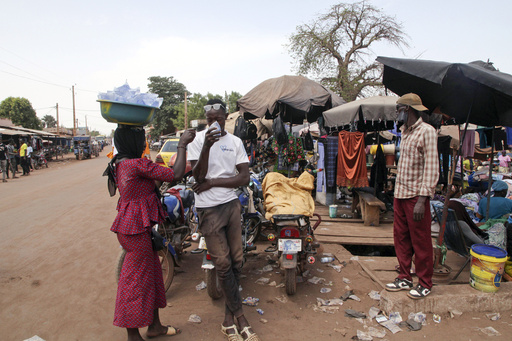
In West and Central Africa, children are facing increased exposure to extreme heat, leading to growing health concerns, as stated in a recent report by UNICEF released on Wednesday. The report reveals that the frequency of heatwaves in the region has surged more than fourfold since the 1960s. Earlier this year, West Africa witnessed an unprecedented heat wave that resulted in a significant rise in fatalities.
A hospital in Mali reported a stark increase in deaths, with 102 fatalities in the first four days of April compared to 130 deaths throughout the entire month of April the previous year. The exact number of deaths attributed to the severe weather remains undisclosed due to regulations imposed by the country’s military government. The escalating heat is particularly worrisome for children and expectant mothers, as it is linked to an elevated risk of stillbirths, low birth weight, and premature births according to the report.
The high heat levels also render children more susceptible to chronic illnesses and infectious diseases that thrive in hot climates, such as malaria and dengue fever, as noted by David Knaute, a regional climate specialist for the U.N.’s children agency. In Central Africa, an outbreak of mpox, formerly known as monkeypox, is currently affecting children at a disproportionate rate. Reports from the Africa Centers for Disease Control and Prevention indicate that nearly 70% of mpox cases in Congo involve children under 15 years old, who also account for 85% of related fatalities. The World Health Organization declared the outbreak a global emergency on Wednesday.
The UNICEF report emphasizes the urgency for governments to curb carbon emissions to mitigate rising temperatures and shield children from the adverse effects. Knaute stressed that these children are growing up in nations that bear minimal responsibility for climate change yet suffer some of its harshest repercussions.
